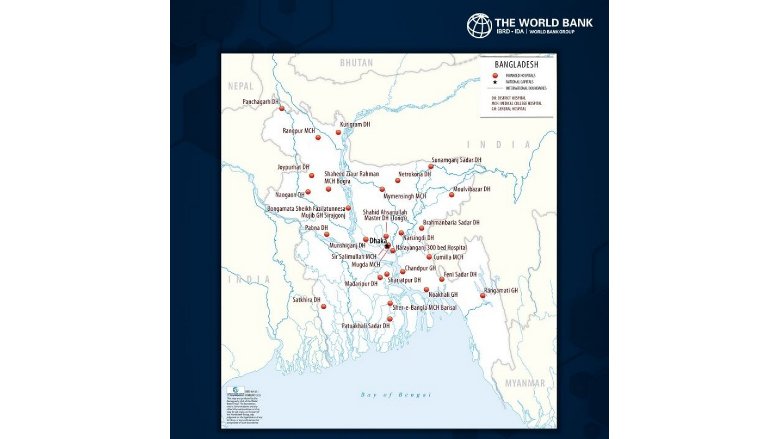Challenge
Like the rest of the world, Bangladesh faced severe health and economic challenges from the COVID-19 outbreak in early 2020. With the international supply chain constrained, the government was desperate to secure emergency medical supplies, including ventilators, hospital beds, oxygen, and testing machines. It also faced a shortage of good quality personal protective equipment (PPE) for front-line health workers. The government needed support to develop protocols and guidelines to deal with the disease and subsequently to deploy vaccines.
Approach
Within three weeks of the detection of the first case in Bangladesh in April 2020, the World Bank approved $100 million of IDA credit to support the health ministry’s emergency response. Subsequently, $500 million of IDA credit was approved in March 2021 to support the government’s COVID-19 vaccination campaign. The project was designed to be flexible to ensure maximum effectiveness, particularly for the quick procurement of supplies. It served as a platform to leverage partner financing, with the Asian Infrastructure and Investment Bank (AIIB) providing co-financing. Bangladesh was the first IDA country with AIIB co-financing for a COVID-19 operation. In addition, the World Bank provided technical support to the government and partners to develop protocols and guidelines and played a key role in developing the national vaccine deployment plan.
Results
The project was instrumental in enabling the government to secure critical supplies during the emergency phase. Now the focus has shifted toward prevention by ensuring vaccinations and strengthening health systems to deal with future outbreaks, not only of COVID-19 but any pandemic. Specific results achieved include:
68 million doses of vaccines administered.
100 million syringes procured for administering the vaccines.
Liquid medical oxygen (LMO) systems established at 30 public hospitals. This is a key milestone in strengthening the health system as access to oxygen supplies is critical for dealing with COVID-19 as well as other respiratory diseases. These hospitals did not previously have centralized LMO systems.
40 ventilators, 20 oxygen concentrators and 20 pulse oximeters are in use at the Bongomata Field Hospital at Bongobondhu Sheikh Mujib Medical University Dhaka.
300 ventilators were installed at public hospitals handling COVID-19 cases across the country. 220 beds for intensive care units were set-up at the Dhaka North City Corporation COVID-19 Dedicated Hospital.
Large quantities of PPE, masks, body bags, gloves, goggles, coveralls, and aprons were supplied for the protection of frontline workers.
COVID-19 testing machines and kits were used by laboratories dealing with COVID-19 samples.
A National Vaccine Testing Laboratory is being set up at the Directorate General of Drug Administration. This will pave the way for the country to approve vaccines locally, following WHO protocols.
In preparation for any future pandemics, the following are being put in place: Modern microbiology laboratories with PCR (polymerase chain reaction) testing -- the gold standard for testing any virus, at 30 public hospitals; 20-bed isolation units and 10-bed intensive care units with gas pipelines at 30 public hospitals; 5-bed ICU at the Infectious Diseases Hospital in Dhaka.


